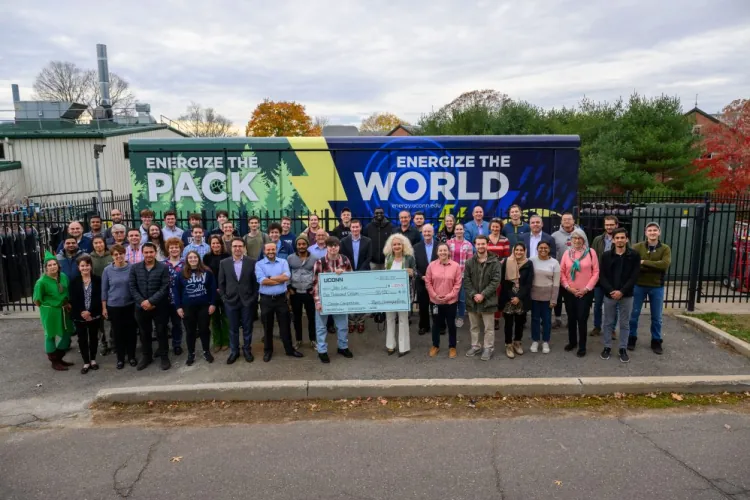UConn's Leap Towards Clean Energy with Solid Oxide Fuel Cell Donation
UConn receives eight solid oxide fuel cell units from InfraPrime, enhancing its clean energy initiatives and research capabilities

- Introduction
- The Gift of Solid Oxide Fuel Cells
- Benefits of Solid Oxide Fuel Cells
- UConn's Commitment to Clean Energy
- Implications for Future Research and Sustainability
- Conclusion
- FAQs
Introduction
The University of Connecticut (UConn) is set to bolster its clean energy research and sustainability goals significantly. Thanks to a generous donation from InfraPrime, an international leader in carbon neutrality solutions, UConn will receive eight cutting-edge solid oxide fuel cell (SOFC) units. This pivotal move not only underscores the university's dedication to clean energy but also positions it as a pivotal player in the burgeoning field of sustainable technology.
The Gift of Solid Oxide Fuel Cells
InfraPrime's donation comprises eight SOFC units, versatile in fuel usage and notable for their high efficiency in electricity generation. These units, roughly the size of a standard dishwasher, are adaptable to various fuels, including hydrogen and biomass. They will be strategically placed at the Center for Clean Energy Engineering (C2E2) and other key facilities within UConn, providing a significant boost to research and educational endeavors in the field.
Benefits of Solid Oxide Fuel Cells
The SOFC units stand out for their efficiency and versatility. Capable of operating on a range of fuels, they offer a cleaner alternative to traditional energy sources. Furthermore, their ability to operate reversibly, producing hydrogen or converting CO2 into fuels, exemplifies the innovative approaches to energy generation that UConn aims to explore further.
UConn's Commitment to Clean Energy
Under the leadership of President Radenka Maric, UConn's strategic plan aims for carbon neutrality by 2040. The installation of SOFC units marks a significant step towards this goal, enabling the university to lead in clean energy technology. With more than 100 faculty members engaged in related projects, UConn is forging a path toward a sustainable future.
Implications for Future Research and Sustainability
The SOFC units not only enhance UConn's research capabilities but also serve as a model for zero-emission and grid-resilient energy solutions. They underscore UConn's role in advancing green energy, aligning with global sustainability efforts, and fostering industrial collaborations that bridge practical experiences with theoretical learning.
Conclusion
UConn's partnership with InfraPrime and the integration of SOFC technology herald a new era in clean energy research and education. As UConn strides towards carbon neutrality, the donation exemplifies the impact of collaboration between academia and industry in achieving sustainable innovation.
FAQs
-
What are solid oxide fuel cells? Solid oxide fuel cells are a type of fuel cell known for their efficiency in generating electricity from various fuels, including hydrogen and biomass.
-
How do SOFC units benefit UConn's clean energy goals? They enhance research capabilities, offer educational opportunities, and demonstrate UConn's commitment to sustainable energy practices.
-
What is UConn's goal for carbon neutrality? UConn aims to achieve carbon neutrality by 2040, significantly reducing carbon dioxide emissions and advancing sustainable energy systems.
What's Your Reaction?





















